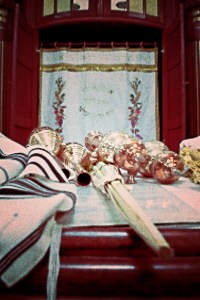by Rabbi Jason Forbes
We never could have foreseen the impact a single local synagogue program could have on so many communities…
In 2010 our community developed the Riverton Mussar program. The concept was formed out of years of questioning how better to be a light of Mashiach Yeshua in a very practical and everyday manner. Over the course of reading and studying, we discovered the concept of Mussar, a personal discipline meant to build good character. We saw the amazing practicality and profound spiritual depth it provided through honing character traits.
We were most inspired by two books by Alan Morinis (head of the Mussar Institute), Climbing Jacob’s Ladder and Everyday Holiness. Like Morinis, we sought a path of personal self-improvement for the sake of clarity and a better life. We also wanted to share the power of this transformative practice with our local community. For years, we had seen too many people nearly hit rock bottom or lack consistency in their lives. We saw Mussar as an integral tool for a more meaningful life.
It became apparent that the one of the best ways to emulate the ethical lifestyle that Mashiach Yeshua spoke of was through Mussar. The more we studied and practiced on our own, the more we saw our Messiah as the ultimate Mussar master. We realized this needed to be brought out in our community.
The first inclusion of Mussar concepts into our congregation began back in 5767, with the ordering of charts by Rabbi Salanter regarding the 13 Middot. Our rebbetzin introduced the children in our synagogue school to the middot. In preparation for the High Holy days, our rabbi incorporated aspects of Mussar at the weekly Torah study.
As we entered the year 5770, it became more evident that the practice of Mussar was the practical solution for many of the situations that we were facing on a congregational level. It not only provided introspective analysis of the character traits that were in need of attention, but also the means by which to maintain a healthy balance of all the middot. It wasn't enough to talk about them—it became apparent that we needed a formalized practice of Mussar within our own congregation at the very least. We needed it and we owed it to our community to bring Mussar to them in a formalized way. In developing the resources for our own community, we realized we could make them available to many others if they were online.
Although other Mussar websites were out there, we did not want to duplicate them. We wanted something intrinsically Messianic and desirable for people with a multitude of backgrounds. We decided to create a website where physical and virtual communities could practice Mussar in a collective and collaborative way: with many voices, with a regimen that would work, and a means to make it sustainable.
In our vision, Mussar became the perfect paradigm to teach life transformation to Jews and non-Jews alike. The program sought to integrate the wisdom of Torah (Hebrew Scriptures), Mesorah (Jewish Tradition), and Besorah ("Good News" - Yeshua's life and teachings) into a life practice that yields long lasting results. This paradigm has been fundamental to the call of being a follower of Yeshua.
As we contemplated the scale of this program we realized that the true power of Mussar is self-discovery and development of concrete actions that counter our negative character traits. What if we provided a way for members to share their discoveries and life wisdom with each other? Mussar is traditionally practiced with a partner (chevrutah) with whom you study and to whom you are accountable. We then developed the idea of a social network where we all can study with each other and learn from each other's discoveries. The website and social network would be an open forum for Mussar wisdom and discovery.
Here are the unique elements Riverton Mussar provides:
We see ourselves not as Mussar Masters. We merely hope to provide the tools and inspiration for growth in our movement beyond the walls of our synagogue. Our prayer is that the wellspring of Mussar guides us all and brings us to a place where we are a wellspring of exceptional character and holiness to others. May all who come to Riverton Mussar drink deeply and be forever changed.

